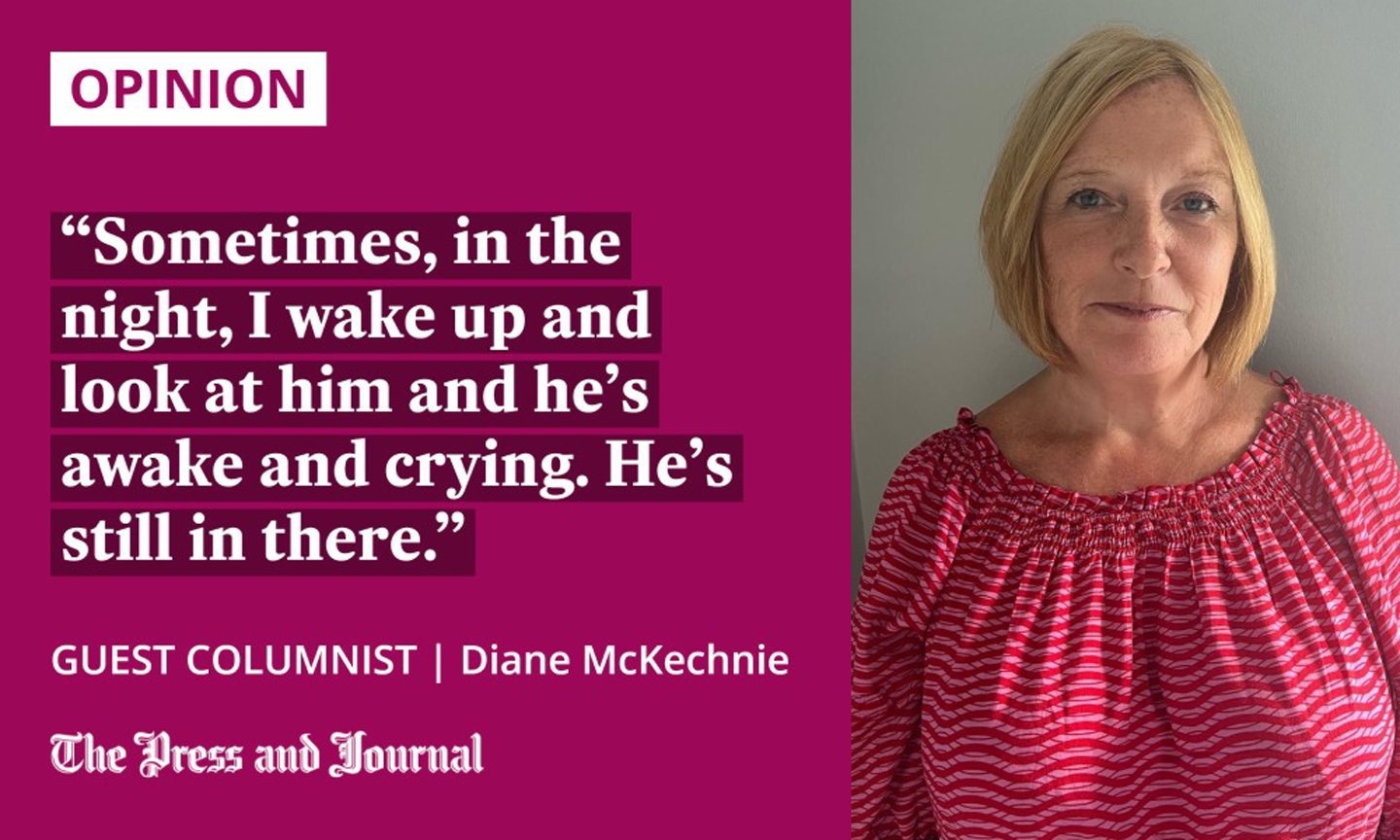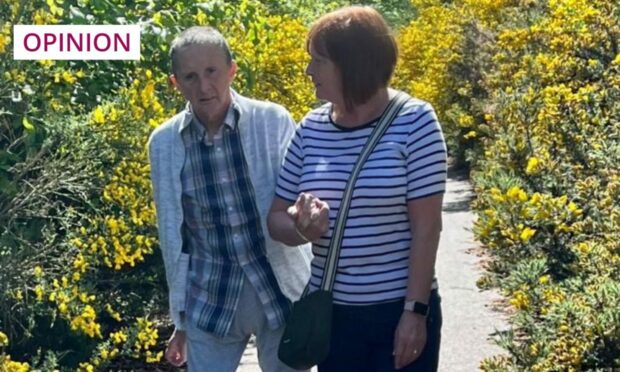“Good morning, I’m Diane, and I’m your wife.”
That’s often the first thing I say to my husband, Ali. We’ve been married for 34 years. Ali finally received his diagnosis of dementia in 2014.
I’m Ali’s full-time carer: I do everything from administering his medication to brushing his teeth.
Before I had this 24/7 unpaid job, I was a paid care worker. I worked with older people, some who had dementia: it was a job I loved. It’s since stood me in good stead.
Ali was 55 when we started to notice little changes. He was an out-of-hours social worker, and when he left the house he’d have his Tupperware box with his dinner inside, his keys and his Filofax lying on the counter, ready to go. Me and the kids used to say goodbye and then we’d count to 10, knowing he’d be straight back to pick up the things on the counter that he’d forgotten.
It was after he came back from a trip to visit friends in Glasgow that we decided to go to the doctor. He’d come home without his holdall, and our friends rang me to say they were worried about him. While he was with them, he’d struggled to tie his shoelaces: he couldn’t remember how.

He had countless appointments, scans and tests, but everyone kept telling me the issues were down to his epilepsy.
It took nearly six years for us to get his diagnosis, of a type of dementia called posterior cortical atrophy: the kind that the author Terry Pratchett had. I was in floods of tears, but I was just so relieved to finally have a diagnosis. Ali was very matter of fact about it.
I left my job as a carer a long time ago: I just couldn’t make the shifts work and leave Ali alone for such lengthy periods. I’d taken a part-time job escorting people to day centres, but I had to leave that too when I began caring for Ali full time.
I felt sad. I thought: “This is it, this is me now.” I was worried about money, too – I would get Carer’s Allowance, but Ali was too young for his state pension.
It was really tough during the pandemic. But I got through it with the support of other carers. We’d meet up on Zoom and every Saturday we had an agreement that, at 12.30pm, we’d all put on the same song and have a dance around in our kitchens. It was a great comfort to know that other people were doing the same thing at the same time. We felt less alone.
Why isn’t money being put back into helping carers and those they care for?
As well as being Ali’s carer, I’m also his advocate. It’s difficult to access information about the limited support available.
If I had a penny for every time someone told me how much money I’d saved social care services then I’d be rich. But what are they doing with all of this money that’s been saved? They’re not putting it back into care or carers: my Carer’s Allowance pays me about 50p an hour.
I miss Ali. You grieve for the person you’ve lost, for the life that you’d planned
I feel I’ve aged about 20 years during the time I’ve been looking after Ali. I’m tired – really tired – and I’m sad. I miss Ali. You grieve for the person you’ve lost, for the life that you’d planned. We’d always said we’d go on lots of holidays when we retired. But that’s never going to happen.
I just wish the Scottish Government would value carers and listen to us about what needs to change. And I wish they’d value the people we look after, too. Ali is still a person.
Sometimes, in the night, I wake up and look at him and he’s awake and crying. He’s still in there. I’m just hoping he doesn’t realise too often what’s going on.
- The campaign A Scotland That Cares is calling for the Scottish Government to create a new, dedicated National Outcome on care. It is supported by more than 60 organisations, including Oxfam Scotland and Carers Scotland
Diane McKechnie is a unpaid carer from Aberdeen
